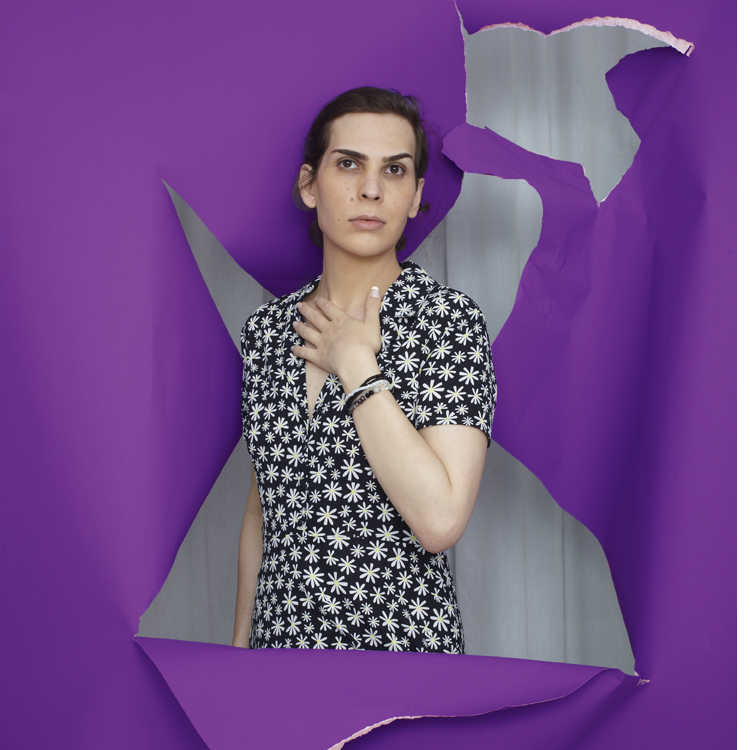I always knew, but at the age of 15, with the help of the school psychologist, I really realized I’m a transwoman. I’ve felt so much better ever since. Although I struggled a lot with my family because of it. I blamed my religion for the struggle. Later I understood it wasn’t my religion but it was political Islam that caused the problems.
My family thinks that they protect me out of love. But they don’t see how their protection and ignorance is hurting me. My parents already passed away. I had to make a choice to live with my older siblings, or to live life like my authentic self.
I knew at some point that my family and me couldn’t get together. I moved to the capital of Lebanon so I had more freedom. After all the loss, feeling lost, I was introduced to the LGBT organization Helem, meaning “dream” in Arabic. With Helem, for the first time I felt at home, like I belonged. Helem provides psychological help, legal help when people are being jailed for being LGBT.
The more I become myself, as Nancy, the more my family and me grew apart. Of course I tried to talk with them, that it’s not a sin. I’ve been trying with arguments since the age of fifteen, but I surrender. They’re brainwashed by political ideas and that’s just not going to change.
At some point I couldn’t take it anymore. My psychologist knew. She gave me the hope that life didn’t need to end here, that there was a place in which I could exist. I went to the Netherlands because of its LGBT reputation. But hope is dangerous. There is not something like an LGBT paradise.
Since I moved here I believe transwomen cannot exist in Lebanon. Here people also stare at me in the street and I face lots of institutional transphobia, but at least I have the minimum right to exist. In Lebanon I wouldn’t be allowed an identification card as myself. Though I also see a lot of parallels between here and Lebanon.
Here it’s also easier for white cis gay men than for me as a refugee transwoman of color. In white Dutch culture the ableism, transphobia, the discrimination is just more institutionally, it’s less in the street. This is a cultural thing.
Trans healthcare for example is a torture! I should be able to take hormones, change my gender and my name. But I am on waiting lists for years, just to get a diagnosis from doctors that I am in fact a transwoman before I can get anything done at all.
I came here for my freedom. I did try to learn the language though and I do feel attached to this country, but Dutch people showed me I’d never belong to this society. I’m not really Lebanese either. I’m mostly a member of the LGBT community. Respect2Love, Connecting Differences, COC, Regenboog and Prisma group, I wouldn’t have made it in this country without them.
In the refugee camp, the COA treats us like lesser humans, like gold-diggers, at some point I was at point zero again. So no I don’t have to be thankful to this country, they didn’t give me a new chance at life. My LGBT community gave me that.
To my community I say: free your mind from the white colonizer man, from the patriarchal system in your mind! I tried to show this in my portrait as I am passing through the paper. In Lebanon till 2010 they used to call LGBT people perverts, but we trans people call ourselves passers, as we’re passing through one gender to the other.

